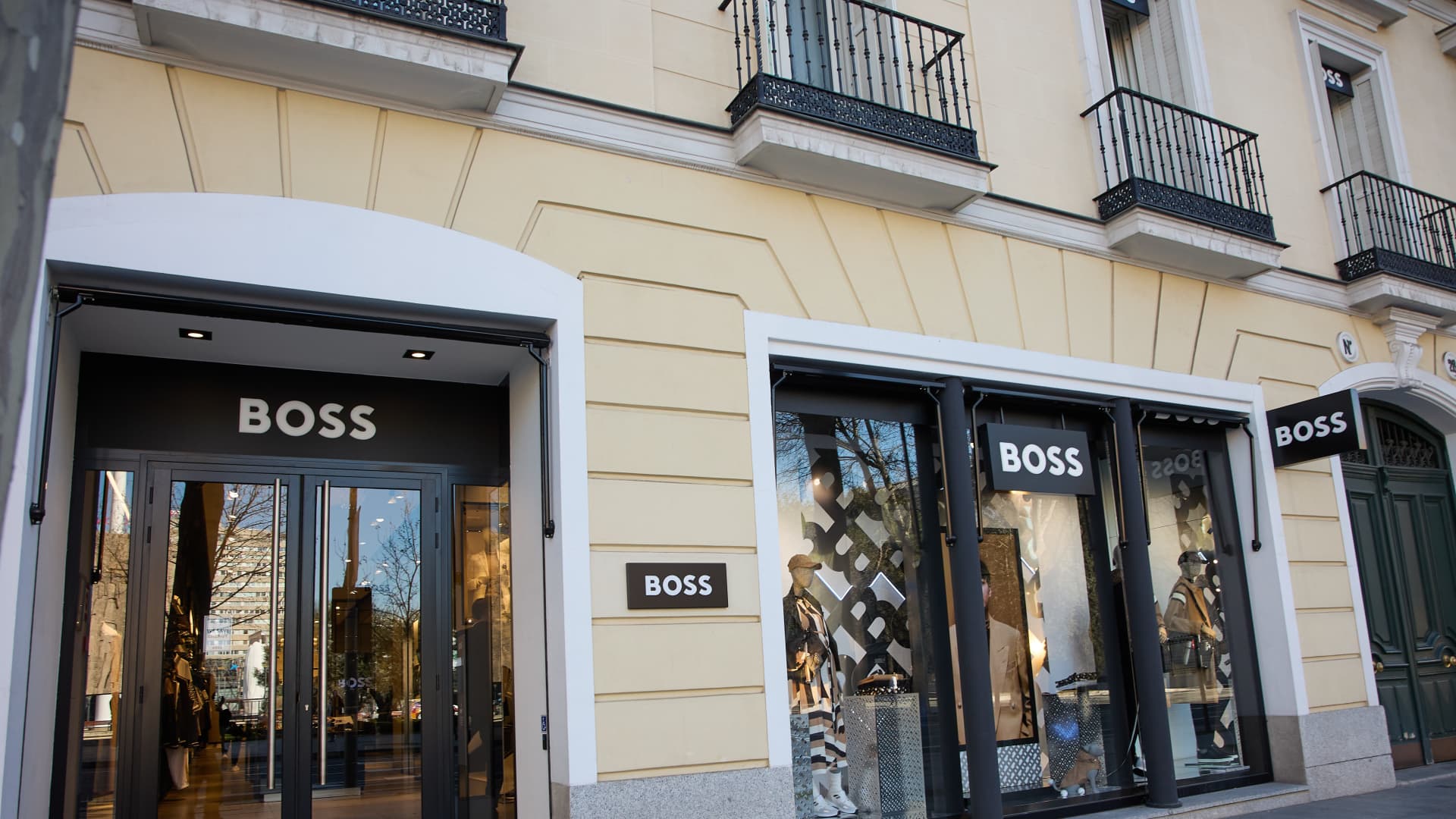Shares of Hugo Boss plunged 18%, before paring losses slightly Thursday, after warning that it may fail to meet its 2025 sales target amid weakening consumer demand.
The German high-end fashion brand was on course for its worst trading day since 2016, after it said it expects sales to grow more slowly in the coming year despite reaching 4.2 billion euros ($4.6 billion) in 2023 — an increase of 18% on the previous year.
Shares were trading 18% lower at 8:52 a.m. London time.
CEO Daniel Grieder told CNBC on Thursday that 2023 was a “record year,” but signaled more modest growth of 3% to 6% in 2024.
He added that the company’s ambition to reach 5 billion euros in sales — originally etched for 2025 — may be “slightly delayed.”
“Even if consumer sentiment is getting, here and there, a bit tough, we actually are on course, and we believe that going forward — also with the macroeconomic environment and geopolitical issues — we are well on track,” Grieder said.
The adjusted forecast comes as macroeconomic and geopolitical conditions have weighed on consumer spending, with other high-end brands including Burberry and LVMH reporting a slowdown in sales.
However, Grieder said Hugo Boss, known for fashion apparel and fragrances, was well positioned as an “affordable luxury” brand that can offer pricing flexibility without compromising margins.
“We are affordable luxury, or an upper premium brand. I think our price-value for our product is exactly the right thing … and that is the sweet spot where we think we are well positioned,” he said.
